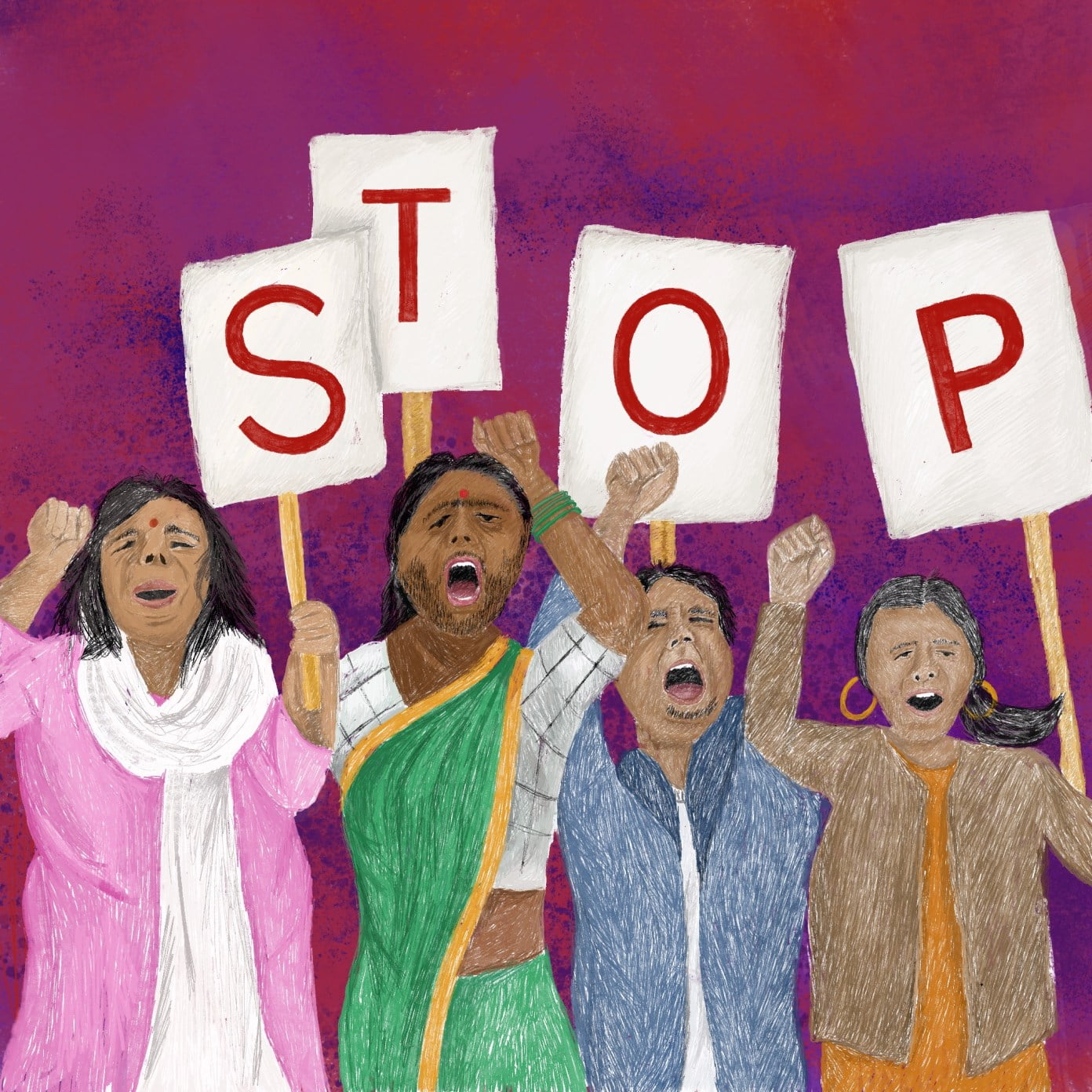Trigger warning: Mention of sexual abuse and rape
Earlier this month, a 20-year-old BTech student from Banaras Hindu University was allegedly molested on campus by three unnamed motorbike-borne men.
According to a report, the student alleged that she was sexually assaulted around 1.30 am when she left her hostel to go on a walk with a male friend, where three men on a motorcycle approached them and kissed her forcibly, stripped her, and recorded photos and videos of her. The student alleged that the men threatened to kill her when she shouted for help.
Following the complaint, police filed a case under sections 354-B and 506 of the Indian Penal Code against three unnamed persons. In addition, gang-rape charges to the molestation case against the men were also added recently. But this came only after seven days of demonstrations by students who felt that the police were downplaying the severity of the attack.
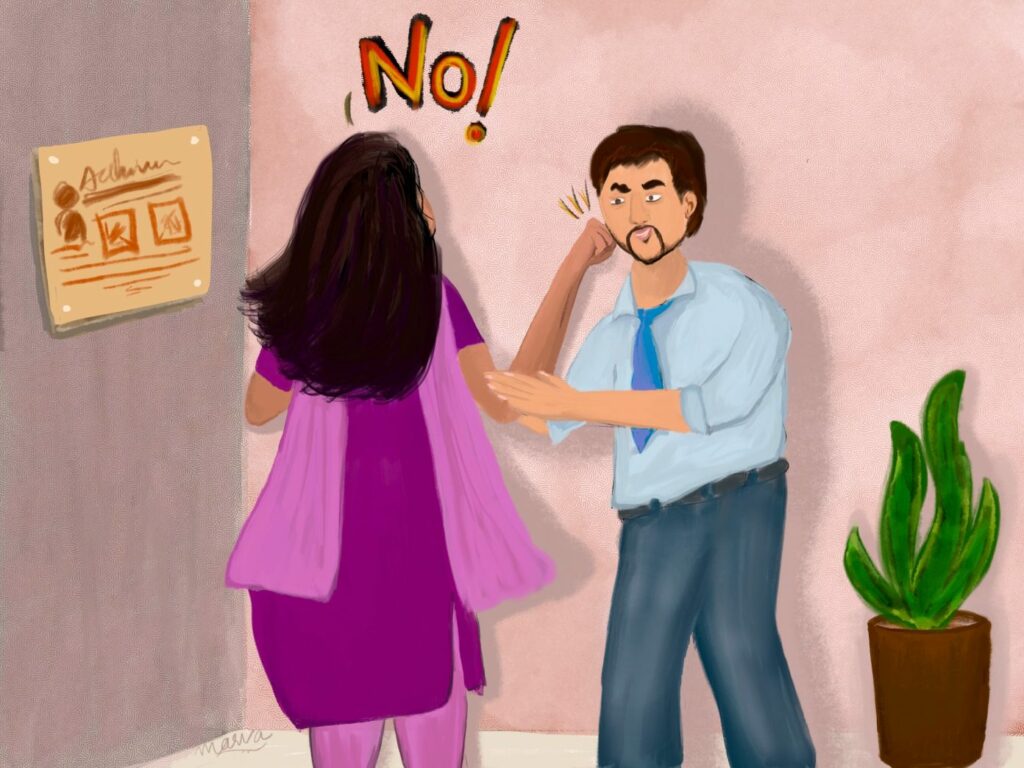
Since the attackers allegedly have a video of the occurrence, a new section, 509B (sexual harassment by electronic method), has been added to the sections including 376D (gang rape). The students have been claiming the existence of the film since November 2, even though its contents have not been made public.
However, according to Varanasi police sources, in addition to IPC Section 376-D (gangrape), Sections 341 (wrongful restraint), 342 (wrongful confinement), 507 (Criminal intimidation by an anonymous communication), and 509 (Criminal intimidation by an anonymous communication) were added to the FIR based on the victim’s statement, as per the reports.
However, all three of the culprits are still at large, questioning the actions of the police who have made little progress in their investigation within that time.
On this, Police Commissioner Jain said “We are moving in the right direction. There is no question of a loose investigation,” said the reports. He further added that the investigation had been handed over from an inspector of Lanka police station to the OC.
“Not the first time it has happened“
This incident is another reminder that safety on the campus has been an issue of continuing concern. Exactly 6 years back, there was a protest outside BHU’s main gate against eve-teasing on the sidelines of Prime Minister Narendra Modi’s visit. Spanning across 1,300 acres (5.3 square km), the BHU campus is one of Asia’s largest residential campuses, and it includes the IIT-BHU where often the women are facing assaults with safeguarding measures around the campus!
In 2017, BHU students protested the alleged victim-blaming of a female student who was molested by two unknown individuals while returning to her hostel. Even though security officers were stationed nearby, the fine arts student received no assistance and was instead shunned with sexist comments and chastised for walking in the dark. The 2017 protest gained attention as police used a lathi-charge on protesting students.
“Despite multiple cases of women being stalked, harassed, groped in the BHU, Varanasi campus in the past, one of India’s foremost universities continues to be unsafe,” read a tweet pointing to another unfortunate incident that happened on the same campus.
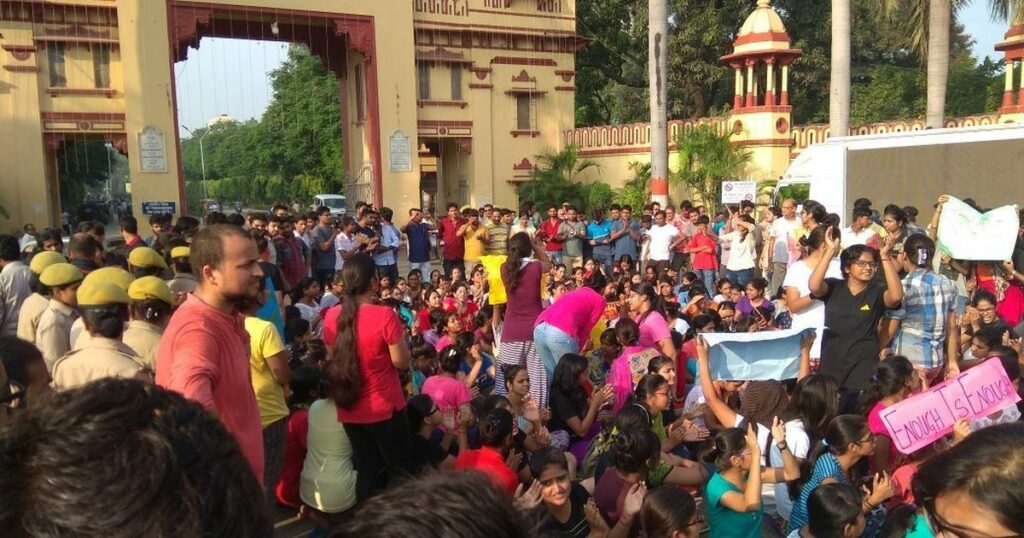
Another report says the students organised a protest in February this year in response to an incident in which a person with a disability was allegedly abused by a young man who was a part of BHU. The act took place under the guise of offering her a ride.
According to the official data of UGC, which came after an assault was reported from the same BHU campus six years ago states that one in every four alleged cases of sexual assault in India’s universities comes from colleges in the state of Uttar Pradesh. Among other universities, Aligarh University, Ambedkar University, and Sharda University all reported cases. Out of the 16 instances that were reported from Punjab, 12 were from Chandigarh’s Punjab University,13 complaints were from the University of Calicut in Kerala, and eight were from Haryana. This is as per the records of the year 2017 and here we are six years later still fighting for the safety of women on campuses and the streets.
On February 6, 2020, a big mob of inebriated men stormed Gargi College in New Delhi at its annual cultural festival, and many of them began masturbating at the females and molested some of them. The tragedy was widely covered in the media and horrified the entire country.
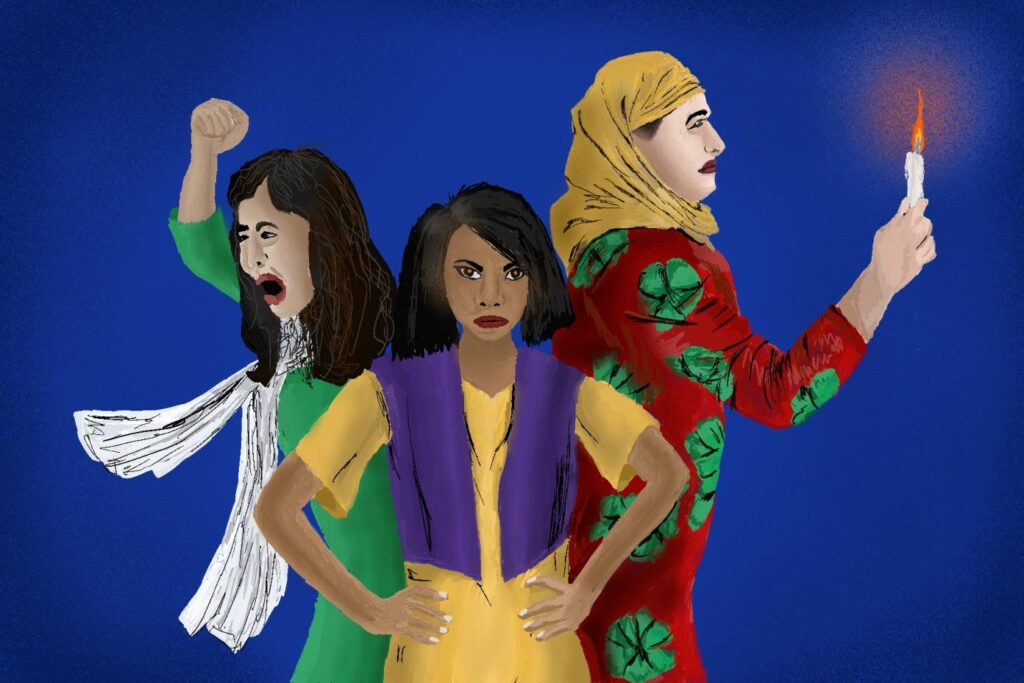
After the horrendous incident, several measures were taken by the authorities and the media escalated the incident to the public which shook the nation. A team from the National Commission for Women arrived at the Gargi College for women, but unfortunately, the cases reporting sexual misconduct have not decreased. On our campus, we point fingers at many seeking answers.
Why are the actions taken only after the damage is done?
A massive protest was held at the 6 Institute of Technology-BHU in Uttar Pradesh’s Varanasi last week after the horrendous crime came to light. Hundreds of students gathered raising slogans and demanding justice as they questioned the safety of students and sought stronger security measures during their protest, stating that girls are not safe because there are no guards in almost every area of the institute. “Unfortunately, we had to take to the streets to get a proper case registered,” said the survivor to the police, as per a report.
Meanwhile, the institute management has chosen to keep all campus barriers closed from 10 p.m. until 5 a.m. Also, the BHU Registrar stated that the institution would be taking proactive steps.
While the students called for improved security measures, the Opposition parties criticised the BJP government for the lax law and order, Congress leader Priyanka Gandhi Vadra asked whether it was “no longer possible,” for a female student in Prime Minister Narendra Modi’s Varanasi Lok Sabha constituency to “walk fearlessly inside her educational institution,” in a post on platform X.
Women aren’t safe anywhere
The IIT BHU management notified the protesting students that the Commissioner of Varanasi had informed them that he had discussed the construction of a campus boundary wall with the Ministry of Education, according to the report. But is that the end of it? How are we assured that no such incident will take place on the campus hereafter? How sure are the students to study with no fear of getting assaulted in the future?
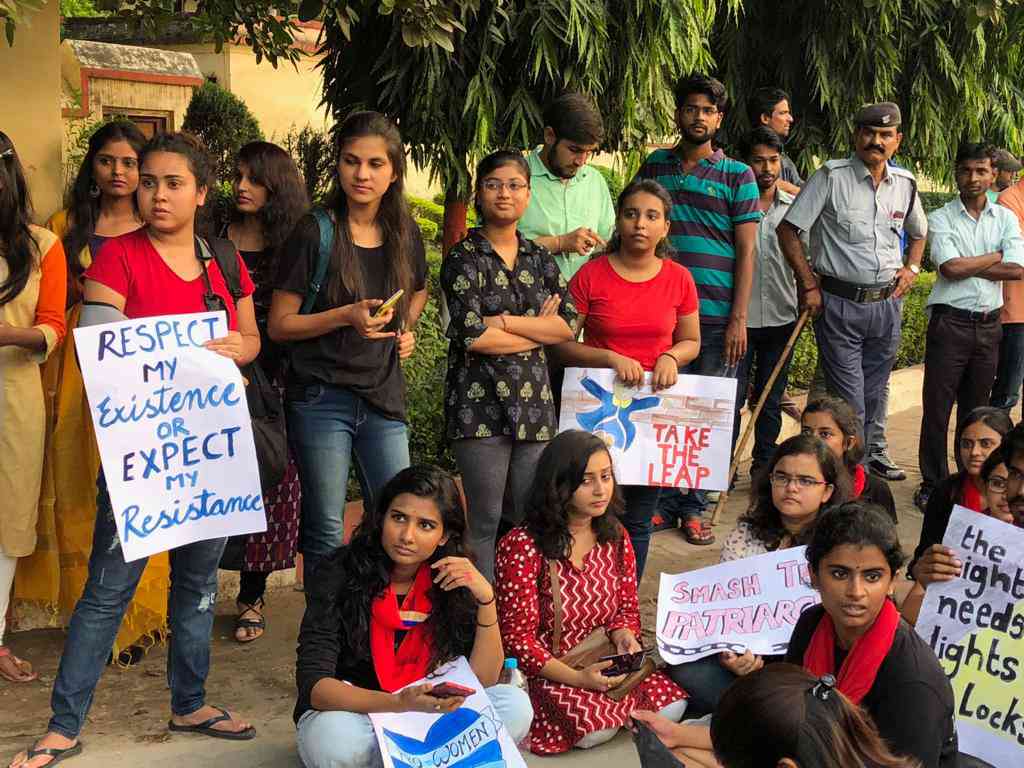
In July, this year, Subhas Sarkar, Union Minister of State for Education, announced that the University Grants Commission (UGC) has prepared “guidelines on basic facilities and amenities for safe, secure environment for women in higher educational institutions.” As required by the Act, advisories on maintaining a safe working environment for female employees have been published. Gender sensitisation seminars/workshops are being held in higher educational institutions.
He also stated that the UGC has asked all institutions and colleges to report annual statistics on incidences of sexual harassment, organise an internal complaint committee, and complete an online Gender Audit compliance at the SAKSHAM web portal. But even after all these measures why is our nation failing women to the point where it takes a massive protest for a single woman to feel safe in their educational institute?
According to NCRB data, it was revealed an increase of 15.3 per cent in crimes against women in 2021 compared to the previous year. This statistic reinforces the dire need for action.
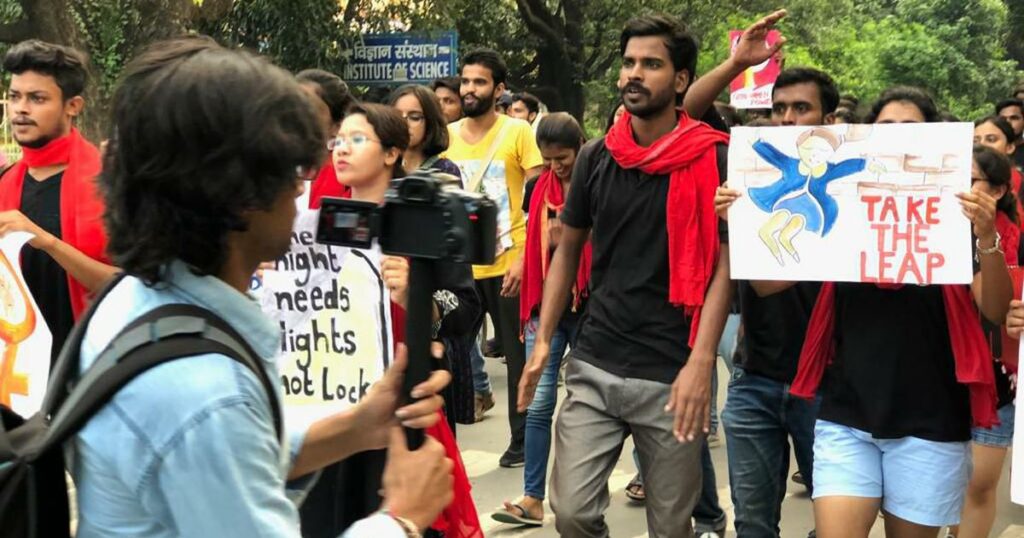
Educational institutions should serve as pillars of hope and equality. As a society, is our common responsibility to guarantee that women can freely wander around, loiter, and participate in these areas, reclaiming them as their own. The one with whom the power resides to change the injustice and ensure safety should adhere to their duty. Unfortunately, we are at a point where we are still requesting for our safety when that should be the priority and a given from the college authorities and governments.
This is more than a plea for change; it is a demand for a more secure and inclusive future for all, and every institution with a stake in it must safeguard what has long been pending — the right of women to safe spaces and to live with dignity.
